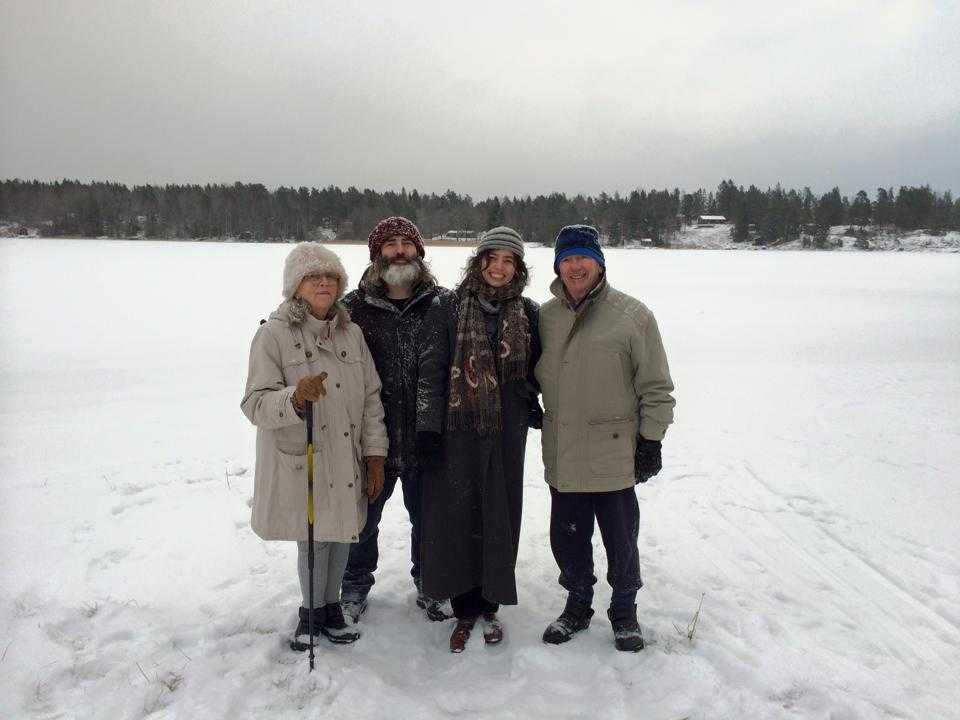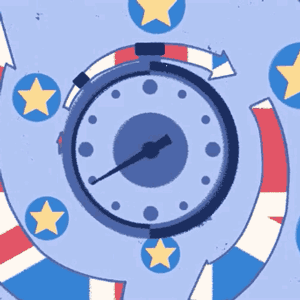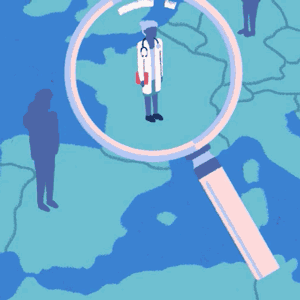Brexit Testimonies

Kate in London, with family in Sweden
"I immediately knew the potential consequences of the Brexit vote in 2016 for my family. The venom with which nationalism was marshalled on both left and right – entirely erroneously – to defend national services against the immigrants without whom they would not exist, and the rapidity with which UK Citizens overseas were referred to as ‘bargaining chips’ made that clear: My parents’ right to health and social care was going to be on the line."
Brexit, Madness and the Family
I have no real idea who you are, Giles Fraser. You’ll pop up every now and then on my Twitter account, and I might occasionally put the name to a voice on the Moral Maze, but I generally have you down as one of the cacophony of commentators who have proliferated in the age of social media, with its accompanying insatiable need for People Who Have Opinions. Whilst I will confess that it is occasionally gratifying to read a witticism which manages to pithily crystalise a certain view, I generally don’t pay commentators much heed. They’re clearly on incredibly tight deadlines so aren’t much for fact checking, and cannot even hope to give a reasonable overview of the debate – which to be fair is not the job description. They’re there to peddle a line, in reaction to whatever news story has gained salience, and provide clickbait and reference points for pseudo-intellectual debate on Facebook timelines everywhere. I do sometimes wonder how the ones on contract have managed to keep their jobs, given the plethora of Influencers out there – I’m guessing it’s consistently hitting those deadlines, some kind of eloquence or flair, and probably a fair helping of personal contacts? But overall I have commentators situated on the Post-truth spectrum somewhere between Thought for the Day and Donald Trump’s Twitter account – i.e. between ‘Whatever’ and ‘The Pernicious Narcissism Which Will Destroy Us All;’ either way, best ignored on the grounds that any engagement will further stoke the problem.
So my reaction to your piece Giles has surprised me somewhat. Why won’t remainers talk about family? exhibits all the hall marks of the standard comment piece. Firstly, it’s based on No Knowledge Whatsoever. And this is the bit where I need to out myself as an academic – one of those pesky experts[1] that everyone hates – and I’ve lectured on UK Social Policy and Economic Geographies of Europe, so am well qualified to be fairly unequivocal in my statement that you don’t know what you’re talking about. If you would like to understand something about the much debated dynamic between families and social policy I can recommend some text books, and once you’ve grasped the basics I would suggest you try some classics: Gøsta Esping-Andersen comparing different welfare system around Europe (you’re advocating the Conservative Regime, Giles), and Ruth Lister to lay bare the gendered dynamics involved. And good for you Giles that you took on a caring role – but I’m afraid that doesn’t mean that what you’re advocating isn’t the standard sexism that you get on the communitarian left – the nature of care work which you’re talking about is still overwhelmingly feminised, and one guy getting applauded for doing his bit does not change that – but I’ll leave the rest to Professor Lister, and maybe the latest from the Women’s Budget Group.
But once I’d got over my standard academic defence-mechanism of wanting to send you a reading list, and the anger and offence at being told I didn’t care about my family, I’m afraid that your comment piece made me cry, Giles.
I was brought up in a caring, working class family, and, as is far more typical than you imply, travelling has been at the very heart of what has brought and kept us all together. My Dad grew up in Coatbridge, on the east side of Glasgow, and always dreamt of joining the Royal Navy, like his older brother. He signed up for nine years, and travelled the world. He emigrated to Toronto, Canada in 1969, where he met my Mum. She grew up on Whitecross Street in East London, and became a State Registered Nurse. She too loved travelling, and moved to Canada in the sixties on ten pound passage. They married in 1972, and I was born a year later. We moved back to the UK in 1975, where my brother, John, was born. I grew up listening to their stories of global adventures—my Dad on active service from Bahrein to Barbados, and my Mum travelling around North America during her vacations from work— seeing Ella Fitzgerald in Las Vegas and Nat King Cole in LA, among many other cherished experiences. It’s no wonder then that my brother and I grew up with an international outlook, and I travel extensively as part of my job, and John now lives in Sweden with his Swedish partner and their two beautiful children.
In 2015, John and I took the decision to move my parents to Sweden. My Dad had been diagnosed with Alzheimer’s, and my mum had had a fall, which had highlighted their vulnerability, and they needed to be close to either me in London, or my brother. And this is the bit where we might agree Giles—inflated UK property prices were a big part of this decision. Moving to London was prohibitive, whilst in Sweden, where the view is that housing is a right rather than an investment, housing outside of Stockholm is reasonably priced. If only there was a way we could have more European influence, eh? We sold up here and bought them a perfect little flat twenty minutes away from John, where they could spend their old age watching their lovely grandchildren grow up.
I immediately knew the potential consequences of the Brexit vote in 2016 for my family. The venom with which nationalism was marshalled on both left and right—entirely erroneously—to defend national services against the immigrants without whom they would not exist, and the rapidity with which UK Citizens overseas were referred to as ‘bargaining chips’ made that clear: My parents’ right to health and social care was going to be on the line. But I comforted myself, along with my sensible Swedish in-laws, that surely the British government wouldn’t be so stupid as to leave all of those people overseas with no rights? That would be against every principle of good governance and democracy (which, while we’re on it, is not the same as a dictatorship of the majority; in a democracy you can’t vote people’s rights away).
And yet here we are, a month from the deadline, abandoned by political fantasists on both left and right – who have managed to concur in offering a return to a communitarian parochial paradise that has never existed, and persuading people to vote away the best protections we had against the ravages of transnational capital, on the grounds, ironically, that the EU represented the worst that globalization can offer. Oh my – take it from a Latin Americanist, it can get a lot worse than this. And my Dad, who is still himself, despite the plaques that are covering his brain, is still causing me some melancholy mirth when he asks me again to explain why Donald Trump is on the TV all the time, and I can relate to his incredulity that ‘he’s the president of the United States? Seriously? That guy?’, and his equal frustration that politicians ‘keep saying ‘Brexit, Brexit, Brexit? What does Brexit mean?’ I used to find my stock response, echoing the government line at the time of ‘Brexit means Brexit, Dad,’ quite amusing. It’s not funny anymore.
My family will be fine because I’ll make sure they are regardless of what small minded nationalists throw at us. I know a great immigration lawyer—who didn’t like your piece either, Giles—and I have a job which means I can afford to get the advice we need, and there will be a way, for us. But not everyone whose families you are disrespecting will be in that position, and your parlour games in the national press are damaging, Giles. No matter how pleased your agent must have been that you found a gap in the People Who Have Opinions market.
—Dr Kate Maclean

I don't think a lot of people of colour were particularly shocked by Brexit ... it turns out, sorry guys we were right, like this was always there, it didn't go away.
Listen to Terri's Brexit testimony
 Timeline
Timeline Testimonies
Testimonies
 Mythbusters
Mythbusters
